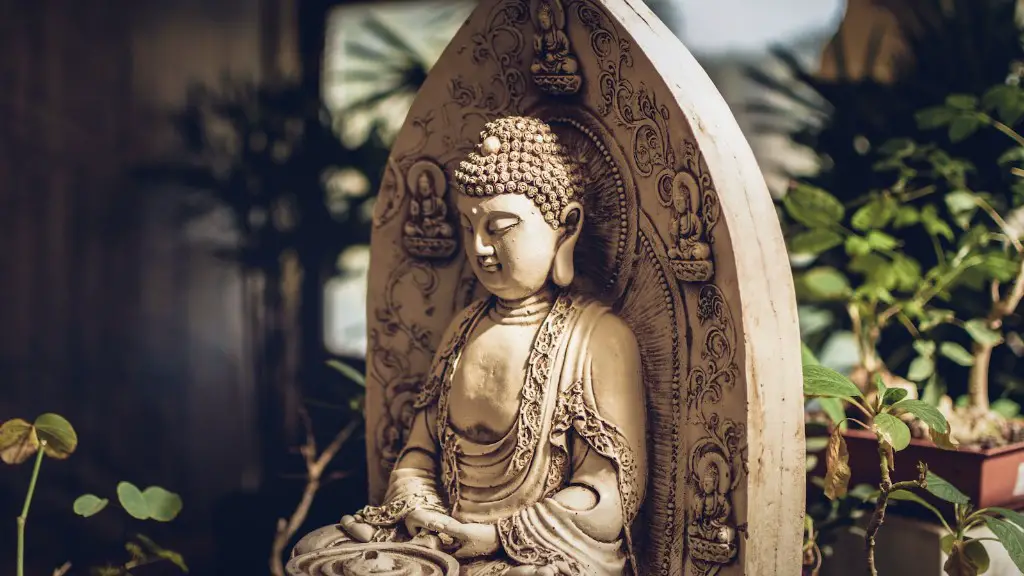Hinduism is a vast and ancient philosophy, and many people throughout time have wondered how to convert to it. Generally speaking, Hinduism is a religion built on personal practices and spiritual experiences, rather than on a set of dogmas or religious principles. Because of this, there is no single “right” way to become a Hindu. The path to Hinduism is different for everyone, and depends upon their individual beliefs, convictions, experiences, and practices. That said, there are general steps anyone can take towards learning more about Hinduism and incorporating it into their life.
Understand the Basics
The first step in converting to Hinduism is learning the basics of its beliefs and principles, so that you can decide whether it is the right religion for you. Study texts about Hinduism, look for common traditions and rituals associated with Hinduism, and take some time to understand the language, beliefs, and concepts associated with the religion. Pay attention to the diversity of Hinduism, and how its traditions vary from region to region and from family to family. Understanding the basics can help you find a path to Hinduism that is meaningful to you.
Explore Rituals
Once you feel comfortable with the basics of Hinduism, it can be helpful to explore rituals and traditions associated with the religion. This could include Hindu holy days, such as Diwali or Holi, or ceremonies that mark important life events, such as a baby wash, marriage, or a funeral procession. You can also observe traditions associated with being a Hindu, such as honoring gods, expressing gratitude for blessings, or visiting temples. Learning and exploring these traditions familiarizes you with a Hindu lifestyle and sense of spirituality.
Find a Mentor
It can be incredibly useful to find an experienced mentor to help guide you on your journey. Finding someone who is knowledgeable and experienced in Hinduism can help answer questions, challenge your beliefs, and offer advice on how to deepen your spiritual practice. It is important to find the right mentor: someone who is knowledgeable and experienced in Hinduism, and respects your choices, your freedom to choose, and your right to make mistakes.
Choose a Path
Once you have taken the time to learn and explore Hinduism, it is time to choose a path that feels right to you. Some paths are quite common to Hinduism, such as devotion to a particular deity, and others are more eclectic or personal. A mentor can be especially helpful for this step, and can help you find the right path for you.
Live Intentionally
Now that you have chosen a path, it is time to start living a Hindu lifestyle. This means taking an intentional and mindful approach to your daily life and living out the rituals, beliefs, and principles of Hinduism. Cultivate a sense of spiritual presence, practice the rituals you have chosen, and find ways to honor and express gratitude for Hindu gods and goddesses.
Connect with Others
Perhaps the most important step of all is to connect with other Hindus and create a sense of community. While many Hindus live as part of a larger Hindu community, some may practice Hinduism on their own or in small family groups. Developing relationships with other Hindus will give you support and guidance and will help you to feel connected to the larger Hindu community. Even if you do not have access to a physical Hindu community, there are still many ways to stay connected. You can find online Hindu communities, attend yoga or meditation classes, or visit temples or Hindu festivals.
Explore Texts
Exploring Hindu texts is an invaluable way to learn more about the religion. Hindu texts often provide insight into philosophy, culture, and traditions, and can help you better understand your path. Texts like the Bhagavad Gita, the Upanishads, and the Ramayana can provide valuable guidance for your spiritual journey, and provide a deeper level of understanding about Hinduism.
Pursue Traditional Practices
Depending on your path and beliefs, it can be helpful to pursue traditional practices associated with Hinduism. This could include reading sacred texts, attending lectures on various topics, participating in festivals or rituals, or visiting temples or sacred places. Pursuing traditional practices can help deepen your understanding of Hinduism and foster a sense of spiritual connection.
Find Professional Resources
Finally, if you are considering converting to Hinduism, it is wise to seek professional resources to help you understand the religion better. This includes books, journals, articles, websites, podcasts, videos, and any other resources that can help you learn and grow in your understanding of Hinduism. Seek out resources from multiple sources, so that you can get a broader understanding of the religion.

